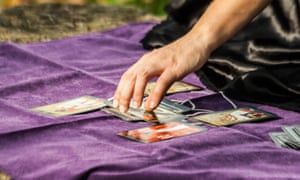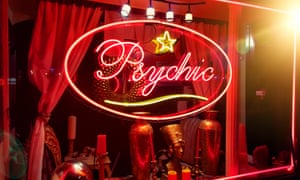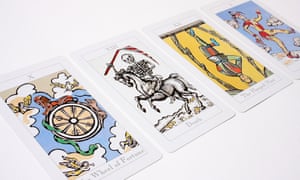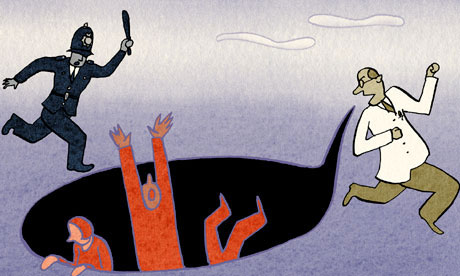Tim Harford in The FT
Economist Ezra Solomon once quipped that “the only function of economic forecasting is to make astrology look respectable”. I’m not sure if the astrologer “Mystic Meg” was ever respectable, but she was certainly much loved. “Britain’s most famous astrologer by a million miles,” said her agent, after her recent death prompted an outpouring of affectionate recollections about her campy image and her arch forecasts about the National Lottery, praised both for their brilliant accuracy and sheer absurdity.
It seems hard to imagine that an economic forecaster will ever earn such valedictions. But many economic pundits seem to have been taking lessons from astrologers. Consider this horoscope: “The balance of risks remains tilted to the downside, but adverse risks have moderated . . . On the upside, a stronger boost from pent-up demand in numerous economies or a faster fall in inflation are plausible. On the downside, severe health outcomes in China could hold back the recovery . . . ”
That pretty much covers everything: good news, bad news, more inflation, disinflation. In case you’re wondering, it’s the latest World Economic Outlook from the IMF. But that sort of “rainbow forecast” is typical of the genre.
Forecasting expert Philip E Tetlock, in his 2005 book Expert Political Judgement, noted that expert pundits had a tendency to make vague forecasts, and to excuse error as “erring on the side of caution” or being wrong only on timing.
If so, those experts are treading a well-worn path. Consider the following statements: “You have a great need for other people to like and admire you.” “You have a tendency to be critical of yourself.” “While you have some personality weaknesses, you are generally able to compensate for them.”
They sound like the kind of thing a clairvoyant might say after gazing into a crystal ball, but these statements are from an academic paper, “The Fallacy of Personal Validation”, published in 1949 by psychologist Bertram Forer.
After getting his students to fill out a diagnostic questionnaire, Forer handed each of them a written assessment of their traits. The students believed the assessments were uniquely tailored on the basis of the questionnaire. But, in fact, each student got the same list of 13 statements, including the three above. The students felt the diagnostic had done an excellent job, and the vast majority agreed with at least 10 out of 13 statements. When the deception was revealed, wrote Forer, “they burst into laughter”. These “Forer statements” — also sometimes called “Barnum statements” after showman PT Barnum — can feel uncannily specific. Most people don’t realise that they are almost universal.
In defence of economic forecasters, including the IMF, Barnumesque verbiage is traditionally accompanied by specific falsifiable numerical predictions. Surely, the real incorrigibles are the economics columnists. We’ll blithely hand-wave about risks and opportunities which may or may not manifest. And like Mystic Meg, we’re kept around only because people find our prognostications entertaining.
The parallels should be no surprise. Walter Friedman’s history of economic forecasting, Fortune Tellers, explains that clairvoyants and economic forecasters started from a similar place. Evangeline Adams and Roger Babson were near contemporaries, born in the US in 1868 and 1875 respectively. Both offered investment advice in general and stock market forecasts in particular. Both were in high demand, and both died rich. The chief difference was that Adams was an astrologer, while Babson offered data-driven forecasts inspired by ideas from physics.
Babson’s forecasting ideas look very strange today. He was a huge fan of Isaac Newton: he purchased and moved the parlour of Newton’s house from London to Massachusetts, funded research into antigravity, and his forecasting ideas are full of misappropriated Newtonian physics. His “Babsonchart” was built around the Newtonish idea that each boom above the trend was followed by an equal and opposite bust below. With hindsight, this was true by definition when Babson plotted the trend line in the right place. Alas, it offered little predictive power beyond generalities.
Still, generalities will get you a long way. Babson’s reputation as a forecaster was secured when, on September 5 1929, a few weeks before the great crash, he opined, “sooner or later a crash is coming which will . . . cause a decline of from 60 to 80 points in the Dow-Jones Barometer”. Impressive.
What is less impressive is that those gloomy forecasts began years earlier, in 1926, after which the Dow more than doubled. The crash was vastly bigger than Babson had predicted, and it continued long after Babson started predicting a recovery.
No matter. Shortly after the crash began, Babson ran an advert in The New York Times announcing that “Babson clients were prepared” and he still gets credit for predicting the crash. Aficionados of clairvoyancy will recognise some similarities here. If you want to be admired for your forecasts, temper your bold claims with vagueness and be sure to trumpet the successes and downplay the failures.
No sooner had Mystic Meg’s death been announced than The Sun, which published her column, was explaining that her final horoscope was a “sweet prediction” that she would be reunited in the afterlife with an old flame who died in a car crash in 1977. “Leo: It can be the most routine of routine journeys that takes you towards your soulmate.”
For those readers willing to swallow the idea that death itself is “the most routine of routine journeys”, it’s a startling piece of prescience. For the rest of us, it’s audacious silliness. Mystic Meg would have been proud.





 72 Comments
72 Comments
